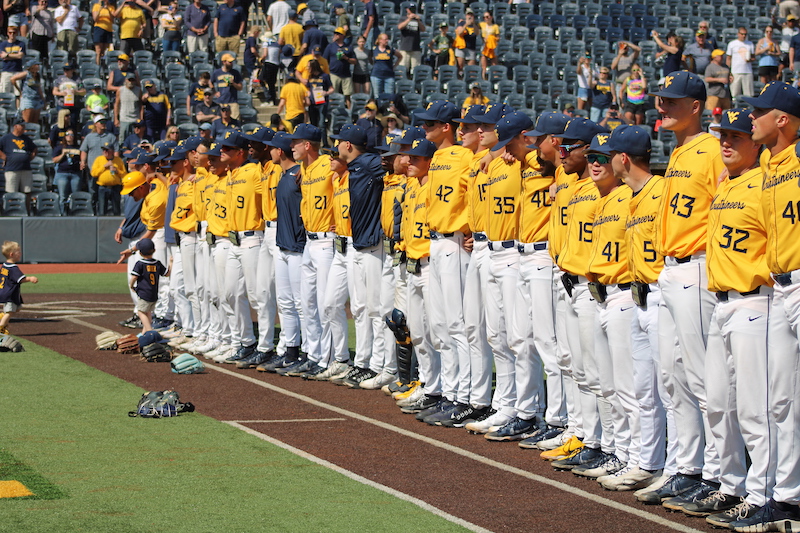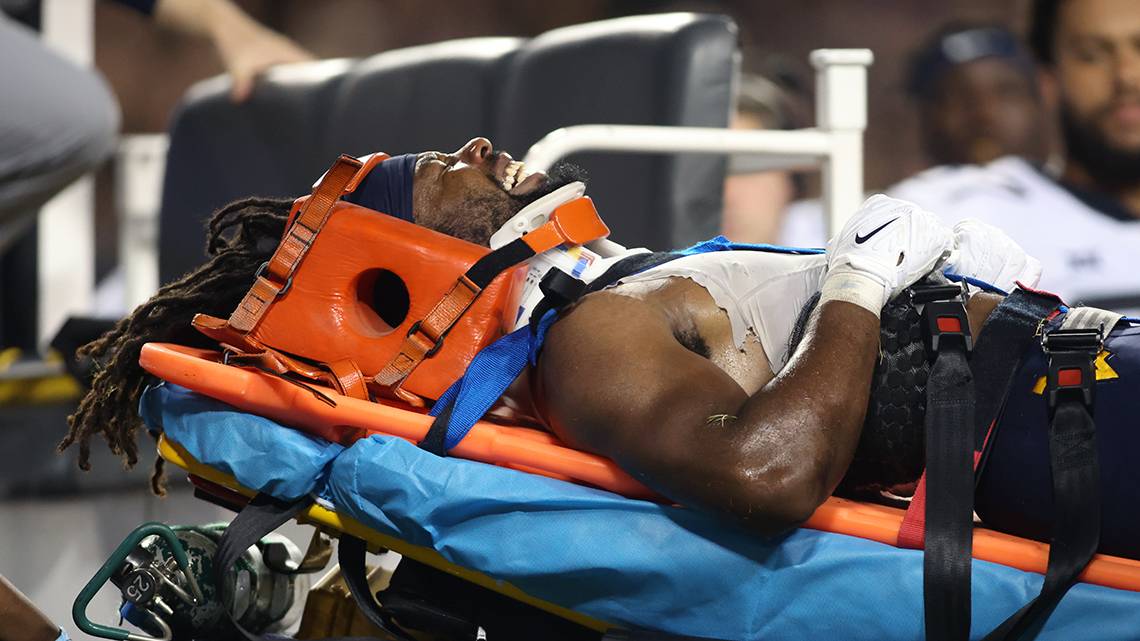Last weekend, having had my fill of sports, I picked up my remote and switched over to Netflix where I stumbled on to the documentary series “Turning Point: The Bomb and the Cold War.”
As I’m apt to do, I began binge-watching episodes one, two, three and four, and while in the middle of episode five, “War Games,” the name Leonard Perroots showed up on my TV screen.
“Leonard Perroots?” I thought to myself. “Could that be the same Len Perroots who once played baseball for West Virginia University?”
As my slow-moving brain began to come alive, I recalled the late Mickey Furfari once telling me about a former WVU pitcher named Len Perroots who had advanced to a high-ranking position in the Air Force.
So, yes, this was the same Leonard Perroots.
Lt. Gen. Perroots’ career included a stint as the deputy chief of staff for intelligence at the Air Force’s European command in West Germany in the early 1980s. This was during a time when U.S. relations with the Soviet Union were on a “hair trigger,” according to a top-secret U.S. intelligence report that wasn’t declassified until 2015.
President Ronald Reagan had denounced the Soviet Union as the “evil empire,” and Kremlin leaders were becoming convinced that war games planned by the United States and NATO in Western Europe were a prelude to a potential nuclear first strike on Russia. The U.S. had deployed Pershing II missiles in West Germany in 1983 in response to the Soviets moving some of their SS-20 missiles closer to their western border, meaning each side could hit enemy targets in a matter of minutes.
According to Perroots’ 2017 obituary in the New York Times, on Sept. 27, 1983, a Soviet early warning station had erroneously received signals that five incoming Minuteman intercontinental missiles had been launched from American bases. Col. Stanislav Petrov, the duty officer in charge, made the split-second decision that a satellite glitch had triggered a false alarm, and he chose not to act.
More than a month later, Perroots was presented with a similar situation when fully armed Soviet fighters were placed on alert at Polish and East German bases for the first and only time during the Cold War in response to the ongoing Able Archer military exercises.
At Ramstein Air Base in West Germany, where the U.S. Air Force had its European headquarters, Perroots was faced with the decision of responding or ignoring the threat. His instincts told him not to respond and he recommended the military exercises quietly cease. Had he reacted, a tit-for-tat escalation could have provoked an all-out war.
“Had Perroots mirrored the Soviets and escalated the situation, the war scare could conceivably have become a war,” Nate Jones wrote in 2016 in “Able Archer 83: The Secret History of the NATO Exercise That Almost Triggered Nuclear War.”
“Fortunately, Perroots trusted his gut, and Able Archer 83 ended without nuclear incident,” Jones wrote.
“It was Perroots’ understanding of his adversary that diffuses this crisis,” remarked U.S. military intelligence officer and author Brian Morra in the Netflix series. “We see time and again in this ’83 crisis, it’s the individuals that have the courage to stand up and make the call – not the system that necessarily works.”
In 1985, Perroots left Ramstein Air Base to become commander of the Air Force Intelligence Service until his retirement from active military duty in 1989. His post-military career included serving as president of Vector Microwave Research, a consultant to the military and the Central Intelligence Agency.
Perroots was a Morgantown native and a 1955 West Virginia University graduate with a bachelor’s degree in history. His Mountaineer baseball career included two seasons pitching for legendary coach Steve Harrick in 1953 and 1954. After that, Perroots received his commission through the Reserve Officers’ Training Corps program and entered the Air Force as an intelligence officer.
He died on Jan. 29, 2017, in Lake Ridge, Virginia, at age 83.
WVU baseball also counts among its distinguished alums four-star general Earl Anderson, the youngest active-duty Marine ever promoted to the rank of general and the first active-duty Marine Naval Aviator to be promoted to a four-star rank. Anderson became Assistant Commandant of the Marine Corps in 1972.
His 35-year Marine career included combat service in World War II, Korea and Vietnam, and he was awarded 49 decorations, including the Navy Distinguished Service Medal.
Anderson was a starting centerfielder on the 1938, 1939 and 1940 Mountaineer baseball teams and batted .340 during his senior season. Anderson, like Perroots, was born and raised in Morgantown.
Anderson was buried in Arlington National Cemetery in 2015.
Leonard Perroots and Earl Anderson, two decorated American servicemen who began their impressive military careers on the baseball diamond at West Virginia University!


